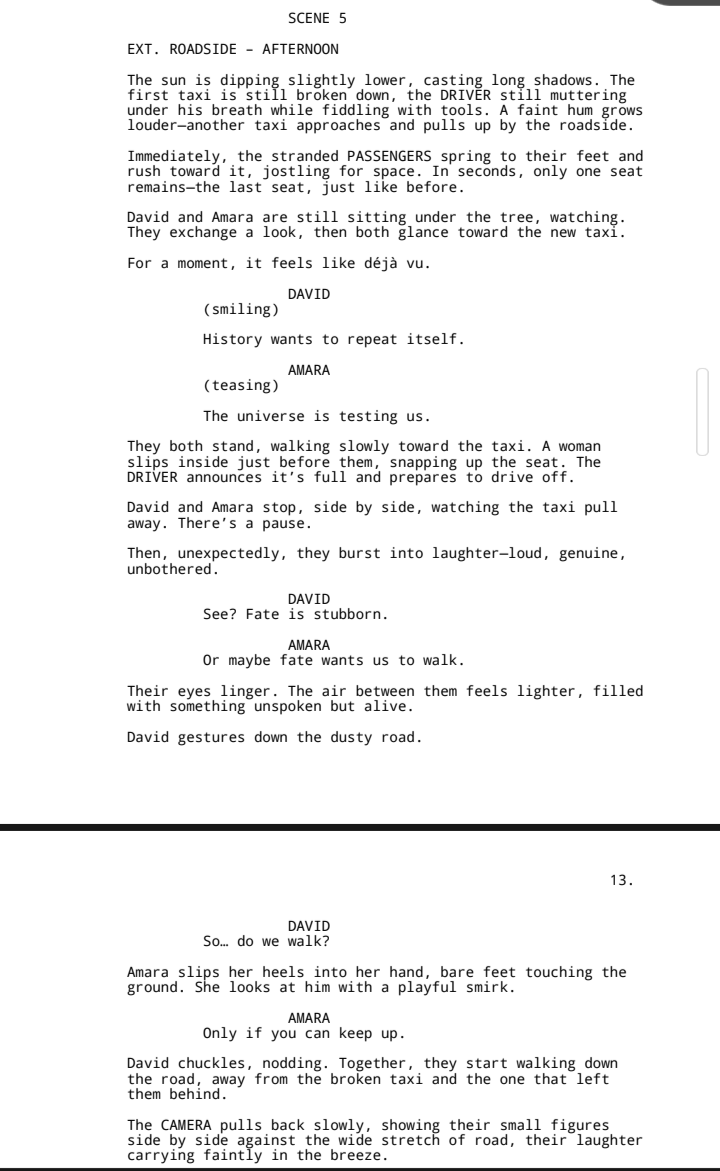

Why Your Scenes Are Dying Before They Even Breathe
Segun Iwasanmi@iwasanmisegun212159
4 months ago
© Segun Iwasanmi
✍️✍️✍️
Every scene must leave a tiny itch in the mind. It could be curiosity, it could be tension, it could even be laughter. But something inside them must want the next page, the next line, the next shot. If not, you’ve only written decoration, not story.
Here’s the trick: don’t dump everything in one go. Give just enough to pull, not to satisfy fully. Think of it like gist. Nobody tells the whole story in one breath. You drop small small until your friend says, “Wait first, what happened after?” That’s when you know you’ve hooked them.
Most amateur writers kill their scenes by resolving everything inside it. Conflict shows up, then they settle it immediately. End of tension. End of interest. But the pros know how to stretch, to plant questions that force you to lean in. Sometimes it’s not even a big thing. One line, one look, one unanswered phone call can carry a whole scene.
When I work with writers on scripts, this is one of the things I adjust first. Because if your audience isn’t asking questions, your script is not breathing. The truth is, tension is oxygen. Without it, no story survives.
© Segun Iwasanmi | ™The Man With The Story.
Book Writer | Screen and Scriptwriter | Creative Fiction writer | Book Editor.
I help people turn rough ideas into bold stories that work























4 months ago

4 months ago

4 months ago

4 months ago

4 months ago

3 months ago

3 months ago
